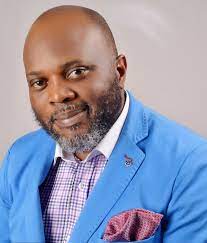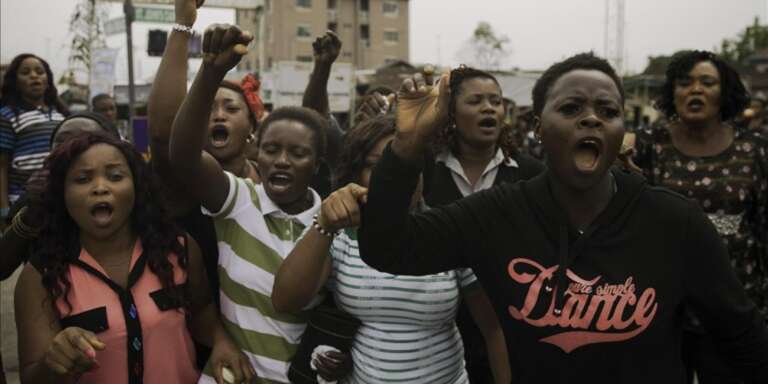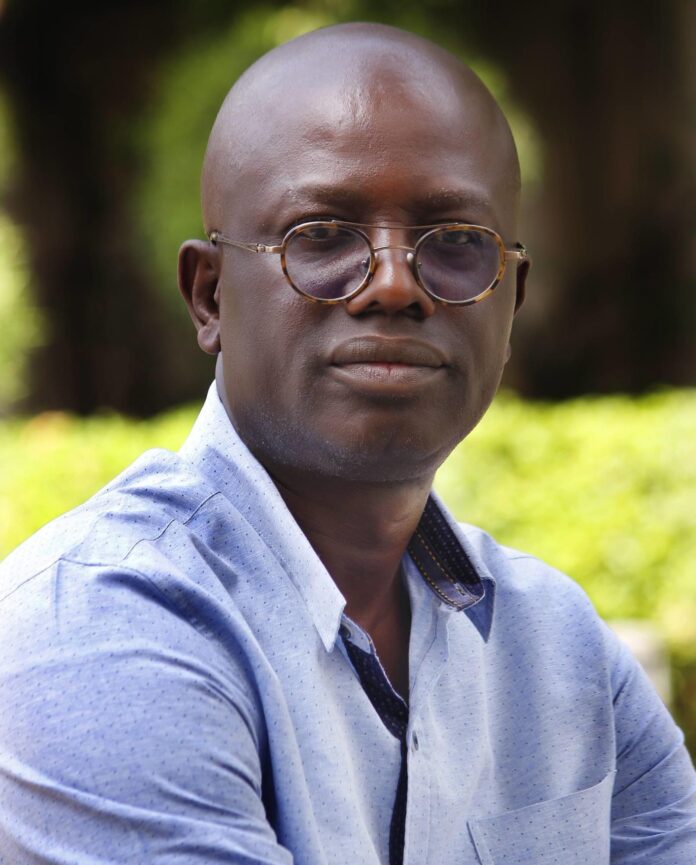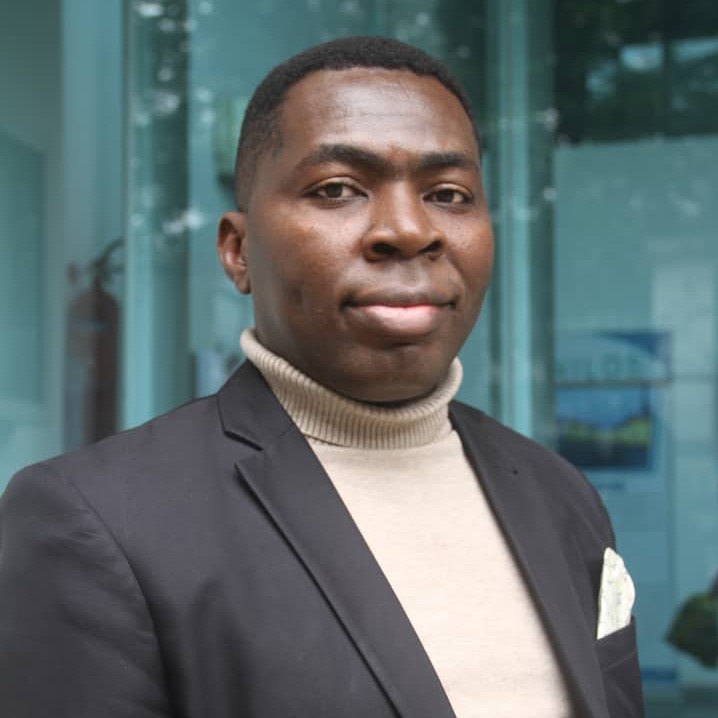Ever since the fight for power and control commenced in Rivers State between Governor Siminalayi Fubara and his immediate predecessor and current Federal Capital Territory (FCT) Minister, Nyesom Wike, it was obvious the two groups were going for broke. While Fubara may have lulled himself to proclaim, as he did last May, that the ‘Jungle has matured’ enough for him to take the fight to his godfather, he didn’t reckon with the deployment of federal might. On Tuesday, he learnt his lesson the hard way when President Bola Tinubu declared a state of emergency that ousted him from office by appointing an administrator for Rivers State. Unfortunately, we have been down this dangerous route before, and it is always a slippery slope.
Although the crisis in Rivers State started immediately Wike left office, it took five months to blow open in October 2023, when some lawmakers loyal to him initiated impeachment proceedings against Fubara. “All of us want to be politically relevant; all of us want to maintain our political structure,” Wike said in response to allegations that he was behind the surreptitious attempt to oust the governor. “Will you allow anybody to just cut you out immediately? Everybody has a base. If you take my base, am I not politically irrelevant?”
Like the position taken by President Donald Trump on the war between Russia and Ukraine, President Tinubu took sides with Wike while urging Fubara to compromise for peace to reign in his state. What followed was the bombing of a section of the House of Assembly complex by forces loyal to the governor who then relocated the legislative arm to the Government House, Port Harcourt. And with 27 members ostracised, Fubara began to govern with four lawmakers domiciled within his office—making nonsense of the separation of powers doctrine on which the presidential system is anchored and without which there can be no transparency and accountability in governance.
Meanwhile, it is interesting that Tinubu is doing the same things he attacked his predecessors for before he became president. When in 2013, Jonathan declared a state of emergency in three states, Tinubu said the country was “witnessing a dangerous trend in the art of governance and a deliberate ploy to subvert constitutional democracy.” In a statement he personally signed, Tinubu called on “those who love this country genuinely (to) advise the federal government not to tinker with the mandates of these Governors under any guise. It is a potentially destructive path to take.” He added: “Any measures put in place which alienate the people, in particular their elected representatives, should be considered as fundamentally defective by every right-thinking person in the country.”
Jonathan did not even remove the governors, yet Tinubu wrote a damning statement ‘in defence of democracy’. But the hypocrisy is understandable. Handlers of every sitting president have always seen declaration of emergency as a political tool that could deploy against opponents. On 3rd June 2014, for instance, the late Ijaw Leader, Chief Edwin Clark, accused then Attorney-General and Minister of Justice, Mohammed Bello Adoke, SAN, of ‘misadvising’ President Goodluck Jonathan, in a 16-page letter he (Clark) still decided to read to the media. After citing the examples of President Olusegun Obasanjo who used ‘emergency powers’ to suspend Dariye (Plateau State) on 18th May 2004 and Ayo Fayose (Ekiti State) on 19th October 2006, Clark wondered why Jonathan was being prevented by Adoke to apply the same principle to oust Governors Kashim Shettima (Borno), Murtala Nyako (Adamawa) and Ibrahim Geidam (Yobe). “The President needs to suspend the affected states’ political structures because the roles of these governors have revealed them as conspirators who are hiding under the guise of opposition to display their politics of bitterness, hatred, ethnicity and religion to disparage him and scuttle Jonathan’s constitutional right to seek a second term as guaranteed by the 1999 Constitution,” Clark wrote.
I believed at the time, and still do so today, that Adoke sided with the law and Jonathan acted correctly on the issue. I therefore consider the action taken by President Tinubu on the crisis in Rivers State as self-serving, and to use his own words, “setting in motion a chain of events the end of which nobody can predict.” But before I conclude, let me take also a few excerpts from my June 2014 column:
“When in May 2004, President Obasanjo suspended from office Governor Dariye and members of the House of Assembly while appointing a Sole Administrator for Plateau State, the consensus of most prominent lawyers at the time was that he acted beyond his powers. From Chief FRA Williams to Professors Ben Nwabueze and Itse Sagay, the argument was that there is nothing in the Constitution that so empowers the president to take the actions he did. In fact, rather uncharacteristically, the late Williams issued a legal position which he circulated to the media. Titled ‘Illegality and Unconstitutionality of President Olusegun Obasanjo’s Declaration of Emergency and Suspension of the Governor and Parliament of Plateau State’ and dated 22 May 2004, ‘Timi The Law’ (as he was fondly called) wrote: “There is no provision contained in any part of our Constitution which confers such a power on the President. It is a contradiction of all known principles of true federation operating in a democratic society. The Governor is elected by the people of the state. So are the members of the House of Assembly. It was a recognition of these facts that informed the provisions inserted in our Constitution relating to the exercise of emergency powers…”
However, having spent several hours at the United States Information Service (USIS) in Lagos, scouring through documents and papers, I wrote a two-part column that I gathered earned me the sobriquet of ‘good boy’ at the villa at a period I was very critical of the Obasanjo presidency. Since the usual refrain in the country at that time was “this cannot happen in America”, I had relied on a 1989 document of the Library of Congress titled ‘Powers of the Presidency’ to suggest that such assumption was not entirely correct. Of course, it didn’t matter at the time that my intervention was more an academic exercise on the powers of the presidency than an endorsement of what Obasanjo did.
According to the Congressional paper, “this argument that presidents have the authority to violate the Constitution, to ensure the security of the nation, has been used by wartime presidents to justify extraordinary exercises of power. When it is evident that conditions of national peril exist, Congress and the American public have turned to the president for leadership. Under such conditions, Abraham Lincoln and Franklin Roosevelt stretched, reinterpreted, and in some cases, brazenly violated the Constitution in the name of national security. Their claim to an inherent executive power to safeguard the nation was accepted because the American people generally agreed with their assessment of the gravity of the emergency at hand. Presidential claims of an inherent executive power during a doubtful national emergency, however, will likely fail the test of public and judicial scrutiny…”
The crux of my position was that while a US President might not have removed elected public officials as Obasanjo did, some had also performed no less unconstitutional acts. For that reason, I argued that Obasanjo may have exercised powers beyond what the Constitution specified to curtail a situation that could lead to a breakdown of law and order in Plateau States at the time. I, however, went further to state that in the United States, the National Emergency Act of 1976 (PL94-412) terminated all states of emergency that were in effect until that time while also setting in place procedures for declaring and, more important from the view of many in Congress, terminating future states of emergency.
In the case of Nigeria, the ‘Emergency Powers Act 1961’ which Obasanjo sought to ‘modify’ was no longer in use which meant there was already a legal vacuum for the action he took on Plateau State. To that extent, I asked the National Assembly to look beyond the person of Dariye, ethnic affiliations and the religions members professed, to the larger implications for the future of our democracy. The question I asked them to address was, should the president have the power to suspend Governors and House of Assembly members and if yes, what political structure should be in place in the intervening period of interregnum and for how long…
ENDNOTE:
I wrote the foregoing in 2014 as a rehash of my earlier column published 21 years ago. While President Obasanjo got away with two ‘emergencies’ that ousted governors from office, President Jonathan chose not to travel that route in a commendable act of statesmanship. But the same Tinubu who waxed lyrical about the illegality of such action in the past has suspended the governor and legislature in a state after what is no more than a contrived crisis. The real danger, as we are now seeing in the United States where the powers of the president are being stretched, is that this may be the beginning of testing the limits of many of the assumptions that undergird our democracy in pursuit of self-interest.
In endorsing the suspension of Dariye in my 20 May 2004 column, ‘The President and His Powers’, I took account of the way he mismanaged the ethno-religious killings in his state, and for speaking the ‘we-versus-them’ language of war at a time the people needed peace. But despite my position on Dariye, I nonetheless raised a few pertinent questions that are still relevant today: Can this declaration not become an avenue for mischief makers in some states to put their governors under the siege of violence and then expect the president to wield the big stick? Under a system that is becoming increasingly intolerant of opposing views, are we not susceptible to constitutional dictatorship? Will a successful execution of this emergency order not embolden the president to go the ‘extra mile’ in other extra-constitutional matters, even concerning his term of office? Are we not unwittingly encouraging the creation of an Alberto Fujimori (who as an elected president dissolved the Peruvian Congress and Supreme Court, effectively becoming a dictator)? Have all the available options been explored before this emergency rule? Is it only a ‘military administrator’ that can instil order in a supposedly democratic government?
Like the mother of the dead child in the Biblical story of King Solomon’s judgment, the Rivers State House of Assembly Speaker, Martin Ameawhule, who led Wike’s ground forces against Fubara, has endorsed the presidential proclamation. But my main concern is about the future of our democracy. Considering how the president ‘resolved’ the Lagos State House of Assembly crisis in a manner that saw the return of an impeached Speaker, we should all be afraid of breeding an imperial presidency. With the All Progressives Congress (APC) National Secretary, Ajibola Basiru calling on the president to apply the same formular in Osun State against the Peoples Democratic Party (PDP) Governor Ademola Adeleke, there may be no end to this ‘Kabiyesi Syndrome’. Especially with a National Assembly whose leadership would only ask the president ‘how many times?’ the moment he asks them to jump!
Clearly, there is a travesty of democratic norms in the hasty declaration of an emergency in Rivers State. But the effect of this haste can only be remedied through the invocation of the power of dialogue as a democratic tool. Such dialogue must be across the partisan aisle. In addition, it remains within the powers of the president to whittle down the influence of those whose political interests may be behind the aggravation of the crisis in Rivers State. Besides, the brand of gunboat politics that necessitated the emergency in the first place must be discouraged. The people of Rivers state deserve better than a show of imperial presidential display and supremacist partisanship.
Emeka Ihedioha at 60
Former Imo State Governor, Hon. Emeka Ihedioha will be 60 on 24th March. That is this coming Monday. Two events are planned for the occasion. First, a colloquium chaired by former President Obasanjo with the theme, ‘Is Democracy failing in Africa?’ at which Bishop Matthew Hassan Kukah will deliver the keynote speech. There will also be a dinner to round it off. I first met Emeka in Abuja in 1992 when he worked in media management under the tutelage of former PUNCH editor, Mr Chris Mammah. I was then a State House Correspondent for African Concord magazine. And we became so close that when he was chasing Ebere (now his wife of 28 years), we were always going to her house together.
Interestingly, apart from his three-year at the Villa as a Senior Special Assistant to then Vice President Atiku Abubakar and his seven-month stint in Imo State, Ihedioha has spent most of his working life with the legislature. During the defunct Third Republic, Emeka was Press Officer to then Senate President, Dr. Iyorchia Ayu and later, Chief Press Secretary to then Deputy Senate President, Chief Albert Legogie. Under the current dispensation, Emeka was also Special Assistant (Media) to the late Dr Chuba Okadigbo (as Senate President) in the 4th Senate. Then in 2003, he contested and was elected to the House of Representatives. During his 12 years in the House, Emeka was at various times, Chief Whip and Deputy Speaker and he made considerable impacts in these positions. Emeka and I started as friends, now we are family. I wish him a most wonderful birthday filled with joy and laughter.
• You can follow me on my X (formerly Twitter) handle, @Olusegunverdict and on www.olusegunadeniyi.com











